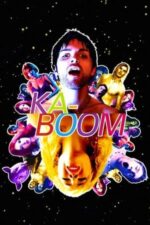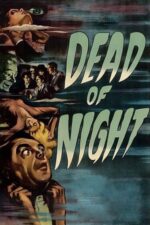Lost in Reverie: Exploring Dreams on Film
Isn’t there something inherently captivating about dreams? That strange logic, those fleeting images, that feeling of being both utterly present and completely detached? They're a universal human experience, and unsurprisingly, filmmakers have been wrestling with how to capture them – and what they mean – for decades. It's more than just showing someone asleep; it’s about exploring the subconscious, anxieties, hopes, and desires that bubble beneath our conscious awareness.
Think about Sbamm!, a film that might seem lighthearted on the surface. But consider Pallone’s relentless pursuit of conducting an orchestra – it’s a dream bordering on obsession, fueled by both passion and perhaps a touch of desperation. It's not just about achieving success; it's about finding his place in the world, a feeling many of us chase in our own lives. That yearning, that drive, feels very much like the engine behind so many dreams – the ones we cling to even when reality throws curveballs.
Then you have something as visually arresting and psychologically complex as Limbo of Roots. The film doesn’t just depict a dream; it is a dreamscape. Those pulsing trees, writhing vines… they're not literal representations but symbolic expressions of an inner turmoil, a connection to nature struggling against the pressures of modern life. It reminds me a little of David Lynch’s work – that unsettling feeling of something being just slightly off, like you’re glimpsing another reality through a crack in the wall.
The challenge for filmmakers is always how to translate that subjective experience onto screen. The Accursed tackles this head-on, blurring the lines between Elly's waking life and her terrifying hallucinations. It’s a fantastic example of using dream logic – where cause and effect become warped – to build suspense and explore themes of isolation and demonic possession. It makes you question what is real, just like those moments when you wake up from a nightmare convinced it was actually happening!
And then there's the more grounded exploration in Dreams Unpainted. While not overtly fantastical, the film beautifully portrays the dreams we hold for ourselves versus the expectations placed upon us by family and society. The young artist’s struggle isn’t about literal dream imagery; it’s a metaphorical representation of the compromises we make to chase our ambitions. It's a poignant reminder that sometimes, the most powerful dreams are the ones we have to fight hardest for.
Ultimately, films exploring dreams aren't just about escapism. They offer a window into the human condition – a chance to confront our fears, celebrate our aspirations, and maybe even understand ourselves a little better. So next time you’re looking for something that will truly resonate with you, consider diving into the world of cinematic dreams; you might be surprised by what you find.







































